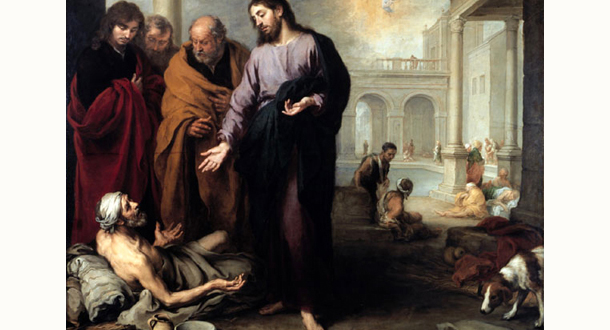
Scripture:
Reflection:
The season of Advent always provides us with a great opportunity to come to a better understanding of the prophet Isaiah. Who was this person? What was the passion that drove him so deeply to write? And most importantly, what is he trying to say about God?
Isaiah is gathered with a community of people who are in a hopeless situation. They are trapped, feeling helpless without a tangible way of escaping their desperation. Having resigned themselves to believe there is no way out, Isaiah begins speaking about the reality of their exile, yet he’s filled with conviction that God is about to do something about their situation. Why? Because God is the God who saves.
Isaiah frequently contrasts images that usually don’t fit together: lions and lambs, blind eyes seeing again, dry deserts overflowing with flowing streams. Not surprisingly we get some of that in today’s first reading. Isaiah recognizes that only God does the impossible. Most of us believe that God can do the impossible. We frequently would call that a miracle. Yet, in reading Isaiah this year I get the sense that Isaiah is trying to say that God is much more than one who occasionally breaks through the laws of the universe for some greater good or personal request. Isaiah is saying that the very ground we all stand on is shifting sand. If there’s one thing these last three years have taught us is that life doesn’t stay constant, it’s always shifting and changing. There are always forces at work beyond us. Our lives are filled with blessings, challenges, and the confrontation of evil. Undoubtedly, living with the unpredictability of life is challenging. Faith for us provides some kind of vision beyond whatever difficult situation we find ourselves. And it’s out of this energy that Isaiah speaks.
As we move through the images of this text trying to rectify in our minds how some of these items begin being put together, we realize this is not a human plan. This is part of God’s plan. And God doesn’t create chaos for amusement or entertainment. The sands beneath our feet continue to shift requiring us to keep moving.
Most intriguing to me is the line that says, “a highway will be there, called the holy way.” As an adventurous hiker I know what it’s like to be lost off the path for quite some time. And I know there’s a certain relief which comes when I stumble across a road. The challenge is that the road doesn’t mean that I have reached my destination. It means I found a road and I’m still a long way from the car. Isaiah says a highway will be there called the holy. Are we willing to walk down the road?
And isn’t that the question for the man in the gospel? Most of us are quite familiar with this story of the paralyzed man who was brought on a mat by his friends before Jesus in a crowded room and lowered through the roof. But I’m sitting here asking what was it like for him? Did he have any desire to see Jesus or was that the desire of his friends who brought him? What is going through his mind when Jesus says to him rise and walk? How long had it been since he had used his leg muscles? Did he even believe he could stand? Everybody staring at him. What happens if he makes a fool of himself, and he falls? He probably didn’t trust himself; how could he ever trust a person he’s never met challenging him to do something he thought was impossible? Yet somehow in that moment he goes beyond merely walking out of the crowded illumined room. He bravely he picks up his stretcher and carries it. He’s no longer a prisoner to the stretcher, he now holds the stretcher’s destiny in his arms.
Isaiah reminds us that stability and predictability are the illusion. And the encouragement we receive is a particular freedom given to us that the highway or holy way may bring deeper trust in God’s faithfulness and generosity to us. And understanding this is something which need to grow within us this Advent season.
Fr. David Colhour, C.P., is the Provincial Superior of Holy Cross Province. He resides in Chicago, Illinois.
